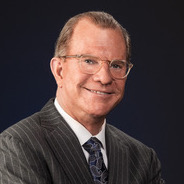4 minutes
Look broadly and diligently for the best new leader you can find.
As of this writing I’ve served on five corporate boards of directors and worked with 329 client boards on governance. I’ve experienced three CEO transitions from the board member perspective and helped numerous client boards with the process of new CEO recruitment and selection. In a few cases, a sitting board member had campaigned or was actively campaigning for the CEO job. I have found that circumstance fraught with problems.
In the past 24 months, I’ve had a supervisory committee chair tell me he could be a better CEO and a board chair actively suggest to the board in executive session that he should take over. It was clearly a “personality” conflict rather than a performance issue and the full board fortunately ignored his selfish interests. In another case a board chair actively and aggressively critiqued the CEO during meetings, all the while letting other board members know she could do the job. In each of these and other situations, it created a hostile environment not only for the CEO, but also for board relations.
In the credit union movement, do we have plenty of board members who could be CEO of a CU? Or course. Should we look to a sitting board member when considering a CEO change? I think not. It creates unnecessary conflict, may lead to hard feelings and can divide a board around personalities rather than competencies.
If board members are replacing a CEO, I encourage them to use a search firm no matter how strongly they think they know a good candidate they can support. A search firm will help the board craft the job requirements in contemporary leadership competencies, help with in depth reference and background checks, and coach the board on behavioral interviewing approaches to the selection process. Even smaller credit unions can afford the investment in a search firm for such a crucial position. The executive search firms working the credit union domain know all the players, have a good sense of who might align with a board and credit union, and can be very helpful in supporting the selection process.
Even in the case of a groomed internal candidate for CEO, I suggest boards conduct open searches. It’s a board’s fiduciary responsibility to assure members they have looked for the best candidate available and at a reasonable cost to the organization. Hiring a new CEO may be the riskiest decision any board makes and it pays to know you’ve looked broadly and diligently for the best leadership you can find.
If a board member wants to compete for the CEO position, s/he should resign from the board, then apply and compete with other candidates. No board member should be allowed to campaign from his or her board seat for an open CEO position—it’s a clear conflict of interest. Their competencies should be closely compared to the job description and their interview should demonstrate a broader view of credit union enterprise rather than just local inside knowledge or anecdotes gained as a board member. Remember you’re not hiring a CFO or CPA, you’re hiring a CEO capable of broad enterprise leadership. You’re not looking for someone with a pet initiative around marketing, financial management or personality.
Certainly the credit union does not need a retired executive serving on the board to come back into service as credit union CEO when there are hundreds of competent candidates in mid-career available. And under no circumstances should a board member become acting CEO. A high-quality CEO search can be fast tracked in four months. If your credit union is at risk of going out of business during that time, possibly the board should be replaced as well.
If a prior board member competes for the CEO job and a vote must be taken by the board to accept them onto the final list, please insist it be a confidential secret ballot overseen by your attorney. Unless of course it is your attorney competing. Now that’s another train wreck for another article.
In cases I’ve witnessed where a seated credit union board member displayed interest in the CEO position, all it took to dissuade them from pursuing that interest was the board deciding to do a broad search using a professional firm. That might not solve any future tension from that board member downstream, but it does send a clear signal from the board that sets a tone for board service rather than job seeking.
Les Wallace, Ph.D., the 9Minute Mentor, is president of Signature Resources Inc. He is co-author of A Legacy of 21st Century Leadership and author of Principles of 21st Century Governance. He is a frequent speaker and consultant on leadership and governance.










